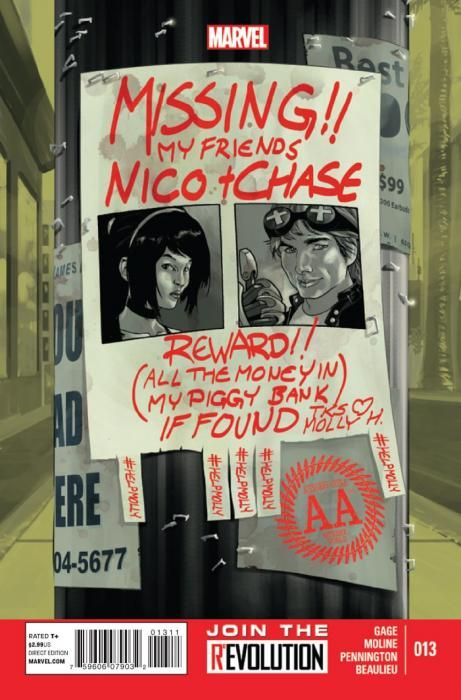"Avengers Arena" #13 by Christos Gage and Karl Moline is the issue readers have all been waiting for: someone finally notices that the kids have gone missing! With suspicions about the (apparently) coincidental disappearance of students from all over the globe, Hank Pym finally sets out to see whether there's a connection, even as Arcade attempts to cover his tracks.
As pleasing as it is to see this story being told, it does feel as though it should have come a little earlier in the book's run. Hopeless has been great at spinning his particular yarn, but it's definitely felt like he's been neglecting to slow down and answer the questions raised by the book's central premise in favour of barrelling on, hoping that sheer momentum will carry the narrative across those barriers. Of course, since this issue is a fill-in written by Christos Gage, it's possible that Hopeless simply isn't interested in the other side of the story, which is why another writer is tackling it.
Luckily, this is a rare instance of a fill-in issue which doesn't just contribute to the series, but feels essential. Gage brings back a number of old "Avengers Academy" characters, giving the series a nod back to its predecessor, while still keeping the focus on the characters and premise of "Avengers Arena". Despite the main cast being largely off-panel, the focus remains on them, which is why it doesn't feel like an issue of another series with the wrong title as some fill-ins can when they deviate strongly from a book's established formula.
Although the issue lacks anything that could be described as an action sequence, the book still rattles along at a reasonable pace, helped by Karl Moline's storytelling. On the detail level, Moline's artwork has moments of weakness -- facial expressions that look a bit off, or Molly looking way too old -- but things like page layouts, panel framing and character body language are all great, telling the story almost without dialogue. A particularly strong moment comes just a few pages in when Arcade's lair is "attacked" - it'll make you wish Moline had some more substantial action to draw.
Still, Gage's script is full of humor and follows the story down a logical path. There's a delicate balancing act at work, because even though we, as readers, know that Pym is being fooled, he never comes across as being unreasonably stupid. In his situation, you can imagine being just as convinced as he is. It might be six issues too late and come over a little like an exercise in box-ticking, but as far as those stories go, this is about as strong as they get. It feels more like a treat for fans who've been waiting for answers since day one, but hey, there's nothing wrong with that once in a while.

